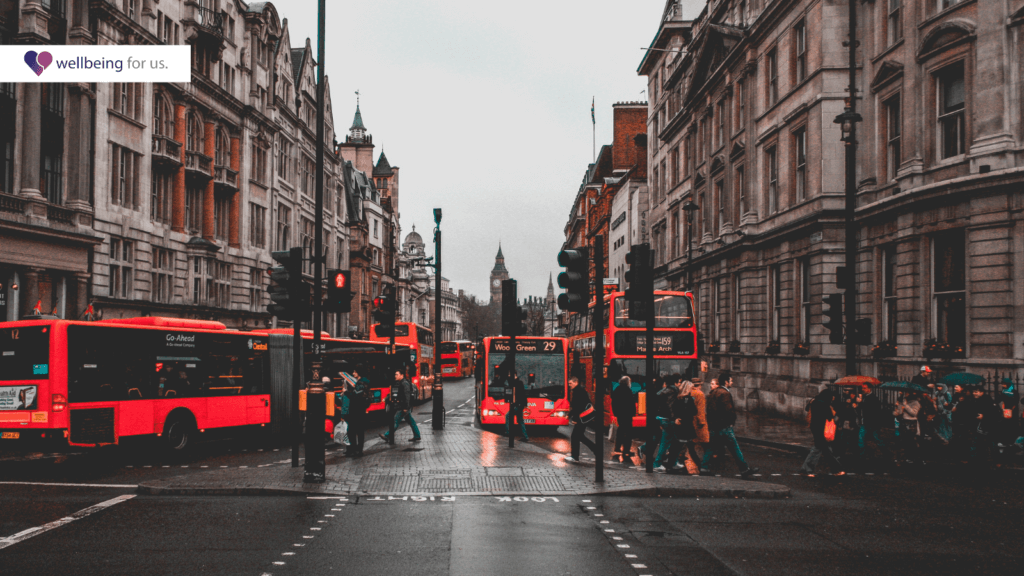
The results of the upcoming election will have a significant impact on many policies that affect our day to day lives. One aspect that needs urgent change is mental health policy. In June 2022 1.2 million people were on NHS waiting lists for mental health treatment. This election charities are urging politicians to place importance on mental health care within their individual manifestos. The Mental Health Policy Group is a partnership of 6 organisations, including charities like Mind and organisations like the Mental Health Foundation, working to improve the country’s mental health through policy changes. They say we need to ‘move to a more preventative approach to mental health, as a country, we need a comprehensive cross-government plan, alongside the funding to make it happen.’ They have outlined key areas where investment would improve mental health, including preventative perinatal care, support for children’s mental health, tackling racism and discrimination, and increased access to nature. Another key issue for charities is reforming the Mental Health Act, a policy used to detain people in crisis, which the Centre for Mental Health say is outdated and ‘disproportionately used against people from racialised communities, denying many their dignity and human rights.’ The organisation is ‘deeply disappointed’ that no changes have been made over the last five years. It hopes a future party will change this.
Looking at each party’s manifesto we get a clear view of how much they prioritise mental health policy and what they are looking to improve. All major parities have made mental health a talking point in their current manifestos, suggesting they are taking note of the increased demand for change. Both Labour and the Conservatives say we should give mental health the same attention as physical health. However, the extent to which they are meeting the Mental Health Policy Group’s aims vary.
Mental Health Act
All three major parties are committed to reforming the Mental Health Act. Mental health occupies a large and detailed part of Labour’s manifesto. They state they want to update the Act to be more inclusive for autistic and learning disabled people, and agree that the Act is more likely to unfairly detain black people than others. They also aim to modernise legislation to give patients greater choice, autonomy and support to ensure everyone is treated with dignity and respect. The Conservatives reserve a small but significant space in their manifesto for mental health reform. They do not mention the Act by name but pledge to pass a new law to provide better treatment and support for severe mental health needs. The Lib Dem manifesto wants to modernise the Mental Health Act ‘to strengthen people’s rights, give them more choice and control over their treatment and prevent inappropriate detentions.’
Suicide Rates
The high suicide rate amongst men under 50 is another issue highlighted by the policy group. Labour lists suicide as a major issue and one of the biggest killers it wants to tackle. It says it will do so by implementing walk in hubs in every community and providing mental health support in every school ‘so young men and boys are not left to suffer alone’, as well as recruiting 8500 mental health professionals to cut waiting lists.
The Conservative suicide prevention strategy will ensure employers of male dominated industries will have appropriate support such as mental health first aiders. Lib Dem’s want to focus on community suicide prevention services and improving prevention training for frontline NHS staff.
Young People
Youth mental healthcare is in crisis. All three major parties and the Greens pledge to improve access to care in schools. Conservatives want to expand coverage of mental health support teams from 50% to 100% of schools and open early support hubs for 11-23yr olds in every community by 2030. Labour want to open Young Futures hubs to provide open access mental health services for children and young people in every community. Lib Dems also want to open hubs focused on giving young people regular ‘mental health checkups’ at key points in their life. The Greens aim to provide a trained and paid counsellor in every primary and secondary school and sixth form and ensure everyone who needs it can access evidence based mental health therapies within 28 days.
What is missing?
Whilst there are important policies listed in party manifestos, the Mental Health Policy Group notes some areas that are being missed. The Centre for Mental Health says, ‘we are very disappointed that neither Labour nor the Conservatives have committed to end the two-child limit for Child Benefit, which causes hardship to so many families.’ Perhaps the biggest disappointment for the policy group is the lack of commitment to cross-government mental health plans. The Centre urges parties ‘to take this essential extra step, and to review the machinery of government so that all policies are designed to boost the public’s mental health.’
Whichever party is successful in the election, organisations hope they will make a commitment to enacting substantial change to mental health policy.
